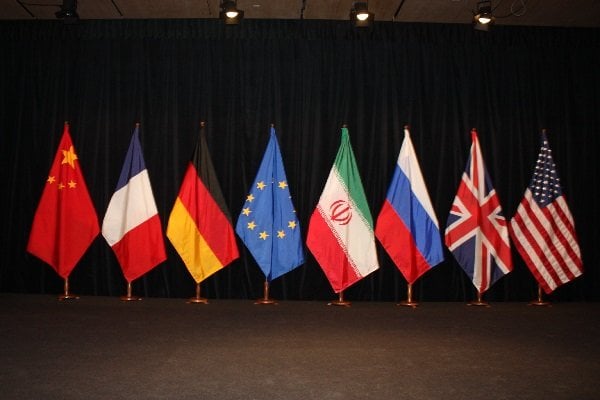On May 8, 2019, the anniversary of the US withdrawal from the Joint Comprehensive Plan of Action (JCPOA), Iran announced that it is no longer committed to parts of the nuclear deal with world powers. The Iranian government acted under tremendous domestic pressure because its compliance neither removed economic sanctions nor the security threats Iran faces.
Iran’s action, however, is a last-ditch effort to save the deal. It is meant to put pressure on the remaining parties of the JCPOA — Europe, Russia and China — to find workable financial and trading mechanisms for easing sanctions constraints. It is also a diplomatic warning to the United States that its “maximum pressure” policy will not alter Iran’s strategic decision to “resist” White House provocations and that Iran has measures in hand to confront US policies.
The Iranian actions were more modest than some of the options previewed in New York last month by Iranian Foreign Minister Mohammad Javad Zarif. Zarif aimed his remarks at both foreign and domestic audiences, thus preparing the ground for announcing Iran’s decision.
His media appearances, which included interviews with outlets as disparate as Fox News and Al Jazeera, were intended to warn Americans and Iran’s adversaries in the Middle East that the Trump administration’s coercive policies would inevitably produce a negative reaction. Among the potential results: increased instability, including sectarian conflict and a rising tide of refugees, and diminished international energy security.
Zarif was also addressing a domestic audience, seeking to build unity among different political trends and policy-making institutions inside Iran. His message was that it is necessary to resist US terms for a “better” deal, which aim to change Iran’s regional and missile policy, thus weakening its deterrent strength.
In Washington, Iran is vastly outspent by lobbyists for Israel and Persian Gulf Arab governments. However, efforts by Trump advisers to sound the alarm at purported Iranian threats are meeting with considerable skepticism among foreign policy elites. In Europe, meanwhile, governments oppose the Trump administration’s unilateral withdrawal from the JCPOA and efforts to reduce Iranian oil exports to zero. Russia, China, Turkey and India have also criticized US policies as undermining multilateral non-proliferation efforts and seeking to coerce the international community.
In his interview with Fox, Zarif sought to appeal over the heads of President Trump’s advisers and warned the US leader not to be dragged into an unwanted war with Iran. Speaking to Al Jazeera, Zarif tailored his message to a regional audience. He said that the fate of Iran and the region is intertwined and Iran seeks peace and dialogue with all regional countries. He described US sanctions as illegal and a form of “economic terrorism” that does not serve regional interests but only those of Israel and its partners among a “Team B” that includes the crown princes of Saudi Arabia and the United Arab Emirates. Recognizing regional sensitivity to the notion of closing off the Strait of Hormuz, Zarif said Iran would not threaten the security of that chokepoint but would respond to any US aggression.
Although sanctioning Iran has a long history and some proponents in the US power structure, US critics of the Trump administration believe that current policies will neither cause Iran to “surrender” nor collapse its regime. From an Iranian perspective, the use of the term “maximum pressure” has echoes of George W. Bush’s “Axis of Evil,” which failed to engender change in Iran’s security policies or political structure.
By connecting the issue of sanctions to national security and fears of disorder and state collapse, the Iranian government has been able to strengthen the logic of resistance against Trump’s policy. The US has hurt its case further by allying with Israel and the authoritarian regimes of Saudi Arabia and the UAE.
In announcing May 8 that it would no longer observe several limitations on its nuclear program, Iranian officials have decided to confront the “maximum pressure” campaign initially by beginning a “soft” diplomatic step based on articles 26 and 36 of the JCPOA. Iran’s hope is that the remaining members of the deal, especially the European countries, take the matter seriously and find a viable means of trading with Iran. If this doesn’t happen, Iran will take the second step including enriching uranium beyond 3.6 percent and redesigning the Arak heavy water nuclear plant, which can produce plutonium, another potential fuel for nuclear weapons.
If these measures bring no positive results for Iran, a “hard” reaction could entail outright withdrawal from the JCPOA, seeking to reduce Saudi oil exports by closing Saudi access to the Red Sea or stopping and inspecting Saudi and Emirati oil tankers in the Persian Gulf. This would lead to much higher oil prices, something the Trump administration has sought to avoid.
Benefiting from regional leverage has always been considered a means to deter threats to Iran. Yet, the moderate government of Iran is still seeking diplomatic solutions to regional tensions if the opportunity presents itself. So far, the European countries have presented no actual measures to relieve the sanctions constraints. Also, the Trump administration has shown no inclination to equally engage with Iran. With Iran’s new measures, circumstances could change.
